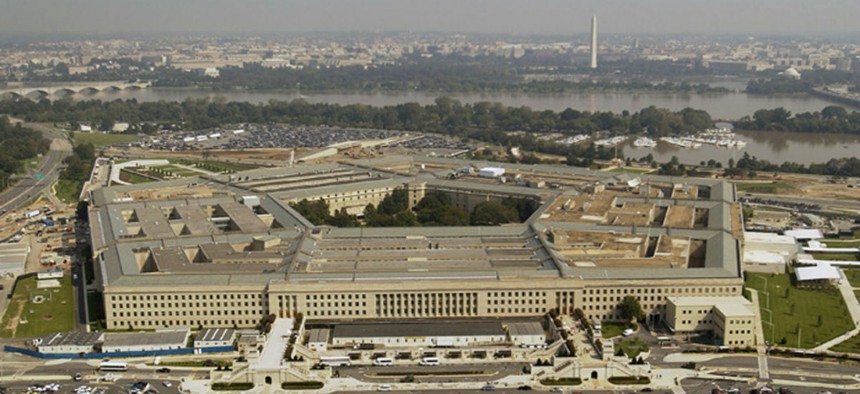
Defense Department file photo
Defense Whistleblower Vindicated for Reporting Privacy Violation
Non-supervisors may not demand others’ telework agreements, IG notes.
A public affairs officer at the Defense Information School was right in claiming a reprisal from a supervisor who lowered the officer’s performance rating following a complaint about a privacy violation involving a telecommuting plan, a watchdog found.
Because telework agreements contain such personally identifiable information as home addresses, the Defense Department inspector general noted in a report released on Thursday in which names were redacted, only direct supervisors are entitled to collect them from employees.
When the public affairs specialist who came to work as an instructor at the Fort Meade, Md., facility in 2010 was asked for his agreement by a non-supervisor, he resisted.
In January 2014, the employee made a complaint about privacy violations, and some 80 days later he received a downgraded performance review after a stellar start in the DIS’s leadership department, investigators found. The employee who had demanded the telework plans later said he didn’t realize he was violating privacy rules, calling it “an honest mistake, not anything nefarious.”
He also characterized the public affairs specialist as a “whiner” who was not being “a team player” and was “stirring things up.”
The public affairs officer then filed a formal complaint, saying, “I firmly believe he is engaging in retribution harassment because I used the open door policy door policy to discuss the problems of the department with [name redacted].”
The IG investigators concluded that the complainant’s downgraded performance appraisal was a “reprisal for his protected disclosures,” but that another employee’s concurrence with the downgraded appraisal was not a reprisal.
The report recommended that the director of the Defense Media Activity reevaluate the complainant’s performance review, and take appropriate action for the substantiated reprisal. The author of the negative performance review disagreed with the IG’s conclusions, but the investigators stand by them.
The complainant left the Defense Department in November 2015 and is now in public affairs at the Homeland Security Department.
The Defense watchdog’s backing of a whistleblower’s claim of reprisal was welcomed as a sign of change by Steven Aftergood, director of the secrecy project at the Federation of American Scientists. He noted that the White House had announced in a report a whistleblower issue training program and a new award for dissidents and whistleblowers. “Whether or not the [intelligence community] intends to celebrate its own internal critics, it seems to want to encourage and now incentivize them, providing improved channels for dissent and whistleblowing that will not inevitably be career-enders or needlessly disruptive in other ways,” Aftergood wrote.
NEXT STORY: A Mustard Gas Attack on U.S. Troops







